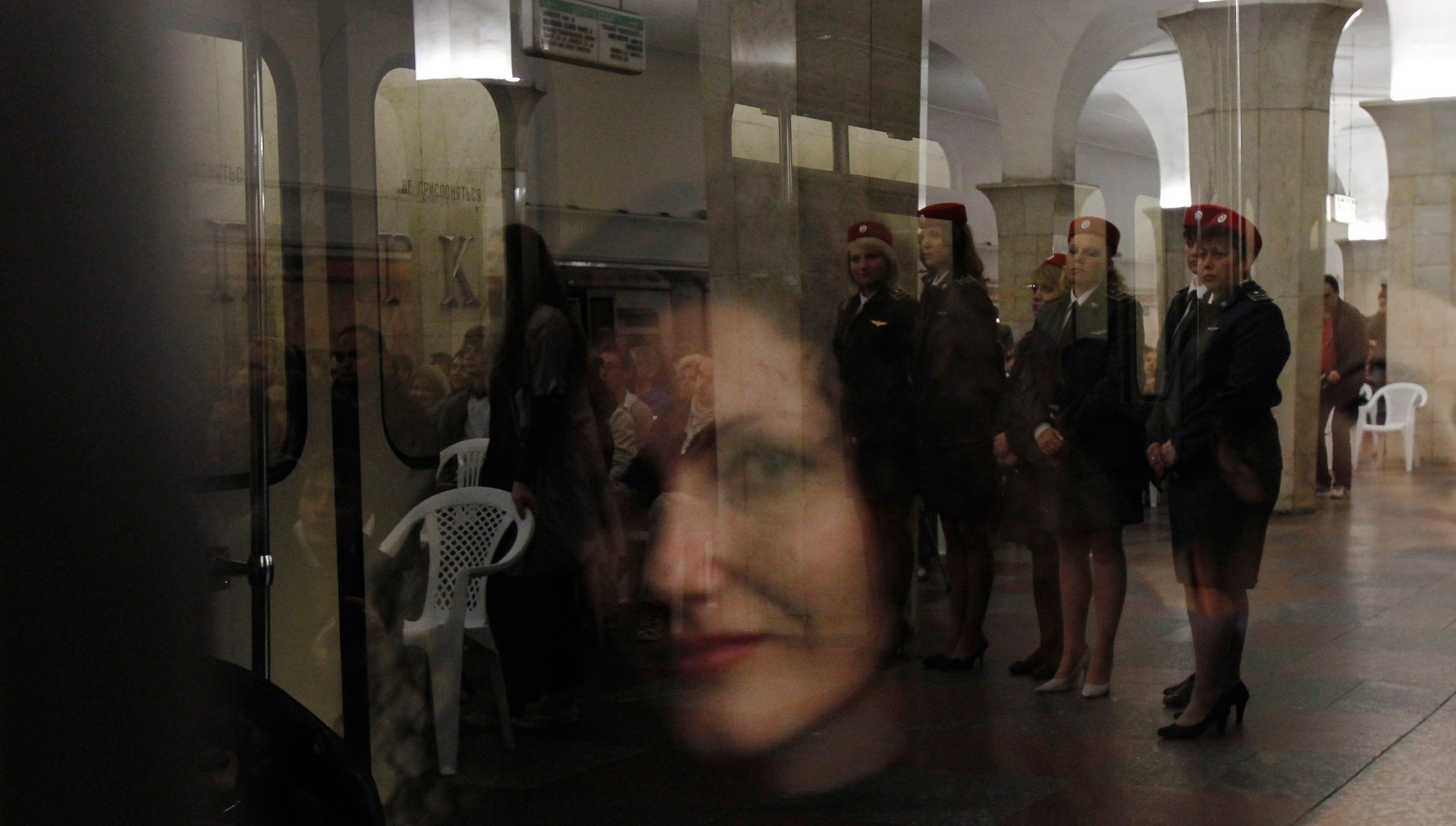I wrote a novel about Putin’s Russia and now I think my pen name is keeping me alive
The café was empty. All of its 23 tables stood unoccupied. Then the door opened and two women walked in. They ordered at the counter, paid, picked up their trays with coffee and pastel de mango, and sat at the table next to me.


The café was empty. All of its 23 tables stood unoccupied. Then the door opened and two women walked in. They ordered at the counter, paid, picked up their trays with coffee and pastel de mango, and sat at the table next to me.
Then they began to speak Russian to each other.
The hair on the back of my neck rose. I turned my computer to face the wall. Were they here to poison me?
I’d been coming here for several months now. Located a block away from my house, it had everything a writer would need. Natural light streaming through large windows, crowds providing the perfect excuse for procrastination, inexpensive coffee, and, most importantly, seats positioned so that no one could see my computer screen. The novel I was writing took place in Russia, mocked the oligarchy, and featured caricatures of those in the highest echelons of Russian society. Oh, and it was called Who is Mr. Plutin?
I didn’t have to fan the paranoia. Russian history—and especially Russian modern history—was littered with examples of people dropping dead from mysterious illnesses after crossing those in power.
It all began one dreary afternoon in 2005, when I was still living in St. Petersburg. I went into an old bakery on the main street, Nevski Prospect. After choosing a cake from a display, I pointed to it, took out my money, and said in my native Russian: “This one, please.”
The woman in a white coat with hair the color of borscht didn’t respond. Without looking at me, she took a small piece of paper, ripped it in half, wrote something, and handed it to me. I stared at the paper and then at her.
She ignored me.
I stared harder.
She rolled her eyes.
“Devushka,” she said, infusing the words “young lady” with disdain, “You need an extra explanation or something? Cashier. You must pay the cashier.”
With that she pointed indignantly to a small glass booth on the other side of the store. Another woman—this one with purple hair and a shawl over her white coat—awaited.
A distant memory stirred. This was how my family usually purchased goods in the former Soviet Union. We would take the small piece of paper, hand it to the cashier with the corresponding amount of cash, watch her key the amount into a Brezhnev-era register, and receive a receipt to take back to the counter. After living more than a decade in the West, I’d completely forgotten this system. My Russian was native but my habits were not.
I left the USSR for the United States when the Berlin Wall was still standing and Gorbachev’s squabble with Sakharov was making headlines. I never planned to return, but one day my husband’s job decreed otherwise. So 16 years after I’d surrendered my red Soviet passport at the Sheremetievo airport in Moscow, I handed my blue American one to the sullen-looking officer at the Pulkovo airport in Sts Petersburg.
“You speak Russian?” he asked reading the line that spelled my birthplace as Moscow, Russia.
“Da,” I said.
For the next several months, I was an anomaly. I sounded like a Russian but behaved like a Westerner. When I saw the bakery saleswoman look at me as if I’d fallen off the moon, I had an idea. What if I write a novel whose protagonist ends up in Russia with no recollection of getting there?
The plot eventually gave me plenty of opportunities to ridicule the Russia of today. The Russia where a minor oligarch could beat a pedestrian to death with a baseball bat for not ceding the sidewalk in traffic. The Russia where a low-level mafioso in my neighborhood could ban a neighbor from a parking lot, after having been woken up by a car horn. The Russia where power and money long ago eclipsed a Communist Party membership.
Putin’s Russia.
“Are you crazy?” my husband asked me. “Do you want to get yourself killed?” He’d just come back from driving in circles through St. Petersburg in an attempt to lose a car that was following him. Several weeks prior, Anna Politkovskaya, a prominent Russian journalist and a fervent Putin critic, had been assassinated a few blocks from where we lived.
“Don’t worry,” I said. “It’s only fiction. Plus I am writing it under a pen name.”
“Like they wouldn’t find you if they wanted to,” he replied.
Since that conversation, many more deaths of opposition supporters, reporters, and lawyers who questioned corruption have come to pass in Russia. Masha Gessen, a journalist and another renowned critic of Russia, started one article in Slate by citing the “Why are you still alive?” question she gets every time she speaks in public. I am not an opposition leader, but with my novel out now, I look over my shoulder and draw my shades at night more often than before.
The acknowledgement section of my book lists only the first names of those who’ve helped me on my journey. And my mother’s reaction was not that of amusement when she saw my book trailer.
“Are you sure about this?” she said as soon as watched me, hat and black veil concealing my face, act out a scene in which I go into hiding. “Things are scary in Russia. You must be more careful.”
Back at the café, when the women left, I looked at the remnants of my coffee. There are plenty of Russian-speaking tourists in Spain, I told myself.
Right?